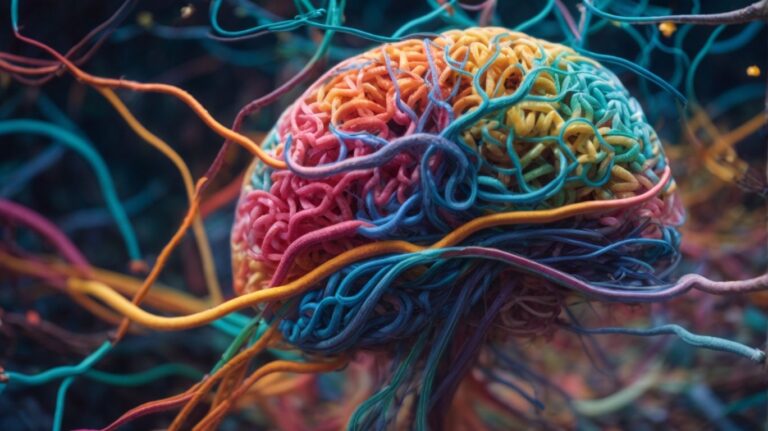Self-reflection is a powerful tool for personal growth and self-improvement. It promotes self-awareness, encourages personal growth, helps to understand emotions and behaviors, and enhances decision-making skills.
In the field of psychology, self-reflection plays a crucial role in therapy, cognitive behavioral therapy, and mental health and well-being. There are various ways to practice self-reflection, such as journaling, meditation, seeking feedback from others, and engaging in self-reflective activities.
Regular self-reflection offers numerous benefits, making it an essential practice for personal development and psychological well-being. This article will delve into the significance of self-reflection in psychology and personal growth, exploring its importance and practical applications.
Contents
- 1 Key Takeaways:
- 2 What Is Self-Reflection?
- 3 Why Is Self-Reflection Important?
- 4 How Does Self-Reflection Relate to Psychology?
- 5 How Can One Practice Self-Reflection?
- 6 What Are the Benefits of Regular Self-Reflection?
- 7 Frequently Asked Questions
- 7.1 What is self-reflection and why is it significant in psychology and personal growth?
- 7.2 How does self-reflection contribute to personal growth?
- 7.3 What are the benefits of self-reflection in psychology?
- 7.4 Can self-reflection be harmful in any way?
- 7.5 How can one practice self-reflection in their daily life?
- 7.6 Is self-reflection a necessary component of personal growth?
Key Takeaways:
- Self-reflection promotes self-awareness and personal growth.
- It helps understand emotions and behaviors and enhances decision-making skills.
- Self-reflection plays a crucial role in therapy, connection to CBT, and impact on mental health.
- Effective self-reflection practices include journaling, meditation, seeking feedback, and engaging in self-reflective activities.
- Consistent self-reflection can lead to numerous benefits, such as improved self-awareness, personal growth, and overall well-being.
What Is Self-Reflection?
Self-reflection is the process of carefully considering one’s thoughts, beliefs, and actions, with the goal of achieving personal growth, professional development, and a deeper sense of satisfaction and fulfillment in life.
Self-reflection is an essential tool for individuals to gain insights into their own behaviors, emotions, and motivations. It involves taking a step back from daily routines and critically examining one’s responses to various situations.
Through introspection, individuals can identify their strengths and weaknesses, enabling them to enhance their self-awareness and make conscious choices in different aspects of life.
Self-reflection plays a crucial role in fostering mindfulness and mental resilience. By practicing self-reflection, individuals can develop the ability to stay present in the moment, manage stress, and respond to challenges with composure and clarity.
This capacity for resilience not only contributes to personal well-being but also enhances professional performance, as individuals can navigate obstacles and setbacks more effectively.
Why Is Self-Reflection Important?
Self-reflection holds immense importance in various aspects of life, including fostering healthy relationships, understanding emotions, setting clear career goals, enhancing communication skills, and give the power toing individuals to recognize their strengths and weaknesses, thus enabling personal and professional growth.
Promotes Self-Awareness
Self-reflection serves as a catalyst for promoting self-awareness, enabling individuals to identify their aspirations, recognize challenges, seize opportunities for growth, and embark on a journey of continuous improvement and personal transformation.
By engaging in self-reflection, one can gain a deeper understanding of their values, passions, and strengths, which are essential in recognizing and pursuing their aspirations.
Moreover, self-awareness facilitates the ability to perceive challenges as opportunities for learning and development rather than insurmountable obstacles.
This mindset give the power tos individuals to embrace challenges with resilience and adaptability, fostering a proactive approach to personal growth.
Through introspection, individuals can also identify areas for improvement and leverage opportunities for transformation, leading to a more fulfilling and purpose-driven life.
Encourages Personal Growth
Self-reflection serves as a powerful catalyst for encouraging personal growth by enabling individuals to recognize their strengths, address their weaknesses, achieve greater satisfaction, find fulfillment, and gain valuable insights into their potential for development.
Through self-reflection, individuals can gain a deeper understanding of their capabilities, allowing them to leverage their strengths more effectively in various aspects of life.
This process also plays a pivotal role in addressing weaknesses, as it enables individuals to identify areas for improvement and take proactive steps to enhance their competencies.
Self-reflection fosters a heightened sense of satisfaction and fulfillment by aligning individuals with their aspirations and goals, leading to a greater sense of purpose and contentment.
The insights gained through self-reflection can be transformative, offering individuals the chance to tap into their untapped potential and unlock new possibilities.
By acknowledging their strengths and weaknesses, individuals can chart a path towards personal development, striving for continuous improvement in various facets of life.
This holistic approach to self-awareness and growth fosters resilience, adaptability, and a positive mindset, serving as a solid foundation for navigating challenges and seizing opportunities.
Helps to Understand Emotions and Behaviors
Self-reflection plays a pivotal role in helping individuals understand their emotions, analyze their behaviors, foster a deeper sense of understanding, cultivate positivity and self-compassion, and build resilience in the face of challenges.
Understanding one’s emotions through self-reflection involves the ability to identify and acknowledge feelings, whether positive or negative. This heightened awareness allows individuals to respond constructively rather than react impulsively.
Analyzing behaviors through self-reflection involves examining actions, thoughts, and reactions in various situations. It helps individuals identify patterns and triggers, leading to improved self-control and healthier decision-making processes.
Fostering a deeper sense of understanding through self-reflection enables individuals to gain insight into their values, motivations, and priorities. This introspective process fosters personal growth and strengthens relationships with others.
Cultivating positivity and self-compassion through self-reflection involves practicing self-care, acknowledging achievements, and embracing self-acceptance. It promotes a balanced perspective and resilience in the face of adversity.
Enhances Decision Making Skills
Self-reflection acts as a catalyst for enhancing decision-making skills by enabling individuals to align their choices with their values, develop essential skills, recognize challenges, and seize opportunities for personal and professional advancement.
When individuals engage in self-reflection, they gain a deeper understanding of their core beliefs and principles, which, in turn, allows them to make decisions that are in line with their values.
This alignment not only fosters a sense of authenticity but also builds confidence in their choices.
Self-reflection give the power tos individuals to develop essential skills through introspection and self-awareness, honing their ability to assess situations critically and make well-informed decisions.
Recognizing challenges becomes more natural through self-reflection, as individuals can identify areas for growth and improvement, allowing them to approach obstacles with resilience and determination.
Self-reflection opens doors to seize opportunities by refining individuals’ perspectives and enabling them to recognize and capitalize on favorable circumstances for personal and professional growth.
How Does Self-Reflection Relate to Psychology?
The concept of self-reflection intertwines with psychology as it delves into the exploration of behavior, beliefs, emotions, empathy, and understanding, offering valuable insights into the human mind and its intricate workings.
Self-reflection is a vital aspect of psychology, impacting an individual’s self-awareness and personal development.
It serves as a tool for introspection, allowing individuals to examine their thoughts, actions, and experiences, which in turn can influence their behavioral patterns and emotional well-being.
By fostering a deeper understanding of oneself, self-reflection can facilitate the identification of underlying beliefs and motivations, shedding light on how they shape one’s responses and interactions with others.
In the realm of psychology, self-reflection plays a significant role in fostering empathy and understanding. As individuals gain insights into their own emotions and experiences, they are better equipped to comprehend and relate to the feelings and struggles of others.
This interconnectedness between self-reflection and psychology underscores the profound impact of introspection on human behavior, relationships, and emotional intelligence.
Role of Self-Reflection in Therapy
Self-reflection plays a significant role in therapy by enabling individuals to explore their emotions, examine their beliefs, practice mindfulness, build resilience, and achieve a deeper sense of satisfaction and fulfillment.
In therapy, engaging in self-reflection allows individuals to delve into the intricate web of their emotions, fostering a deeper understanding of their inner world.
By examining their beliefs, patients can challenge and reshape entrenched thought patterns, enabling personal growth and positive change.
Practicing mindfulness through self-reflection enhances awareness of the present moment, reducing stress and anxiety. It give the power tos individuals to cultivate resilience, thereby aiding them in navigating life’s inevitable challenges with greater adaptability and strength.
Ultimately, through these processes, individuals can attain a profound sense of satisfaction and fulfillment.
Connection to Cognitive Behavioral Therapy
Self-reflection is closely connected to cognitive behavioral therapy as it emphasizes the examination of behavior, understanding of strengths and weaknesses, and the development of adaptive patterns to foster positive change and personal growth.
In cognitive behavioral therapy, individuals are encouraged to reflect on their thoughts, emotions, and behaviors, identifying maladaptive patterns and exploring their underlying causes.
This introspective process allows individuals to gain insight into their own motivations, fears, and triggers, enabling them to make conscious choices for change. By acknowledging one’s strengths and weaknesses, a person can work towards building on their positive attributes while addressing areas that may require improvement.
Impact on Mental Health and Well-being
Self-reflection exerts a profound impact on mental health and well-being by fostering emotional resilience, enhancing satisfaction, and give the power toing individuals to navigate life’s challenges with a positive and proactive mindset.
Self-reflection allows individuals to gain insight into their thoughts, emotions, and behaviors, fostering a deeper understanding of themselves and their experiences.
By engaging in introspective practices, individuals can identify areas for personal growth, develop greater self-awareness, and cultivate a sense of purpose and direction in their lives.
How Can One Practice Self-Reflection?
Practicing self-reflection can be achieved through various methods, including journaling, meditation, seeking feedback from others, and engaging in self-reflective activities, providing individuals with diverse avenues to introspect and grow.
Journaling offers a structured way to reflect on one’s thoughts and experiences. It allows individuals to track their progress and gain insights into their emotions and patterns.
Similarly, meditation provides a peaceful environment to delve deep into one’s inner thoughts. It fosters a heightened sense of self-awareness and clarity of mind.
Seeking feedback from trusted sources offers an external perspective. It encourages individuals to consider different viewpoints and make necessary adjustments.
Journaling
Journaling serves as a powerful tool for self-reflection, enabling individuals to engage in introspection, gain valuable insights, and experience a sense of give the power toment through the process of expressing and analyzing their thoughts and emotions.
Through the act of journaling, one can delve deep into their innermost thoughts, feelings, and experiences. It provides a space for individuals to explore their emotions, understand their reactions to various situations, and identify patterns in their behavior.
By documenting their journeys and moments of self-discovery, journaling fosters a heightened awareness of personal growth and development, enabling individuals to cultivate a greater sense of self-understanding and resilience against life’s challenges.
Meditation and Mindfulness
Meditation and mindfulness practices serve as effective avenues for self-reflection, contributing to the development of emotional resilience, fostering positivity, and nurturing a deeper sense of self-awareness and understanding.
Through meditation, individuals can create a space for introspection, allowing them to acknowledge and understand their emotions more profoundly.
Mindfulness, on the other hand, enables one to be fully present in the moment, fostering a positive outlook and enhancing self-awareness. This holistic approach to self-reflection cultivates emotional resilience, give the power toing individuals to confront challenges with greater calmness and clarity.
Seeking Feedback from Others
Seeking feedback from others is an integral aspect of self-reflection, as it fosters effective communication, enhances understanding, and cultivates empathy, enabling individuals to gain valuable perspectives and insights into their thoughts and actions.
By actively soliciting feedback from peers, mentors, or even through anonymous channels, individuals open themselves to diverse viewpoints that enrich their self-awareness. Constructive feedback not only highlights blind spots but also offers alternative solutions, fostering personal and professional growth.
Acknowledging and implementing valuable feedback further nurtures a culture of openness and respect, laying the foundation for constructive communication and collaborative relationships.
Engaging in Self-Reflective Activities
Engaging in self-reflective activities offers individuals the opportunity to align with their aspirations, address challenges, pursue continuous improvement, and embark on a transformative journey towards personal and professional growth.
Self-reflective activities enable individuals to gain deeper insights into their strengths, weaknesses, and values, fostering a better understanding of their aspirations and guiding them towards fulfilling their potential.
By examining their thoughts and actions, individuals can confront challenges with greater clarity and resilience, leading to more effective problem-solving and decision-making.
This introspective process also cultivates a mindset of continuous learning and growth, give the power toing individuals to seek constructive feedback and embrace change as a catalyst for improvement.
The practice of self-reflection fuels personal and professional transformation, enhancing self-awareness, empathy, and adaptability, which are invaluable attributes in today’s dynamic and competitive environments.
What Are the Benefits of Regular Self-Reflection?
Regular self-reflection yields numerous benefits, including continuous improvement, valuable insights into one’s values and skills, and a deeper understanding of oneself and the surrounding world, thus paving the way for holistic personal and professional development.
Frequently Asked Questions
What is self-reflection and why is it significant in psychology and personal growth?
Self-reflection is the process of introspecting and examining one’s thoughts, feelings, and behaviors. It is significant in psychology and personal growth because it allows individuals to understand themselves better and make positive changes.
How does self-reflection contribute to personal growth?
Self-reflection is a valuable tool for personal growth as it helps individuals to identify their strengths, weaknesses, and areas for improvement. By reflecting on their thoughts and actions, individuals can make positive changes and grow as a person.
What are the benefits of self-reflection in psychology?
Self-reflection has numerous benefits in psychology, including promoting self-awareness, increasing emotional intelligence, improving decision-making skills, and enhancing overall well-being.
Can self-reflection be harmful in any way?
Self-reflection can be a challenging process, but it is not inherently harmful. Some individuals may experience discomfort or anxiety when reflecting on their thoughts and behaviors, but this can be managed with the support of a therapist or trusted confidant.
How can one practice self-reflection in their daily life?
There are many ways to incorporate self-reflection into daily life, such as journaling, mindfulness practices, setting aside quiet time for introspection, and seeking feedback from others.
Is self-reflection a necessary component of personal growth?
Yes, self-reflection is crucial for personal growth. It allows individuals to gain a deeper understanding of themselves and make positive changes that can lead to personal development and overall well-being.




